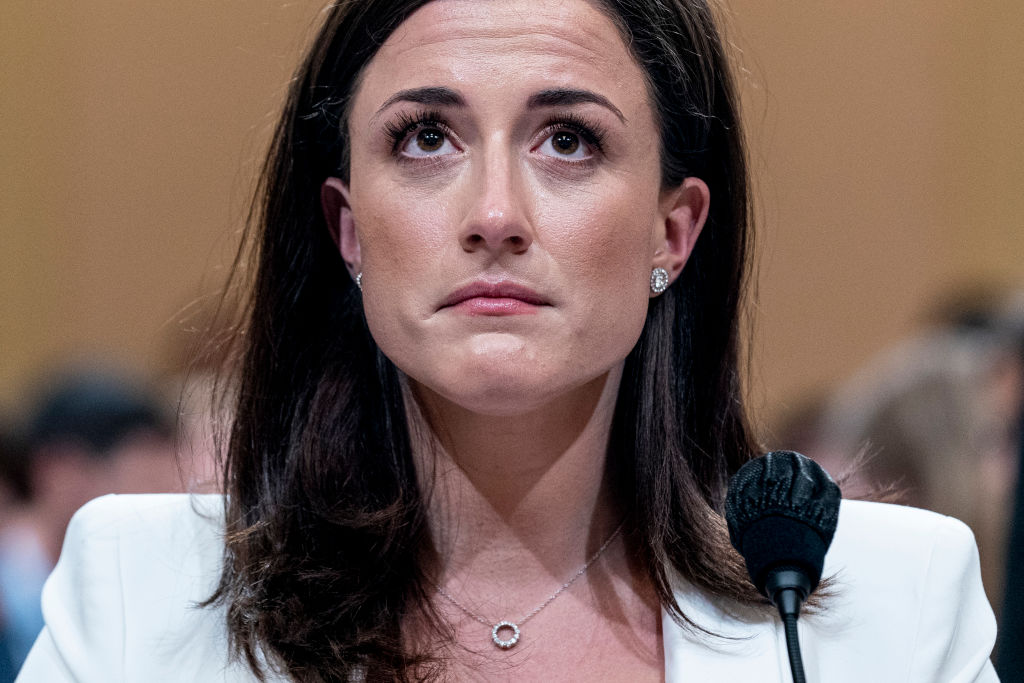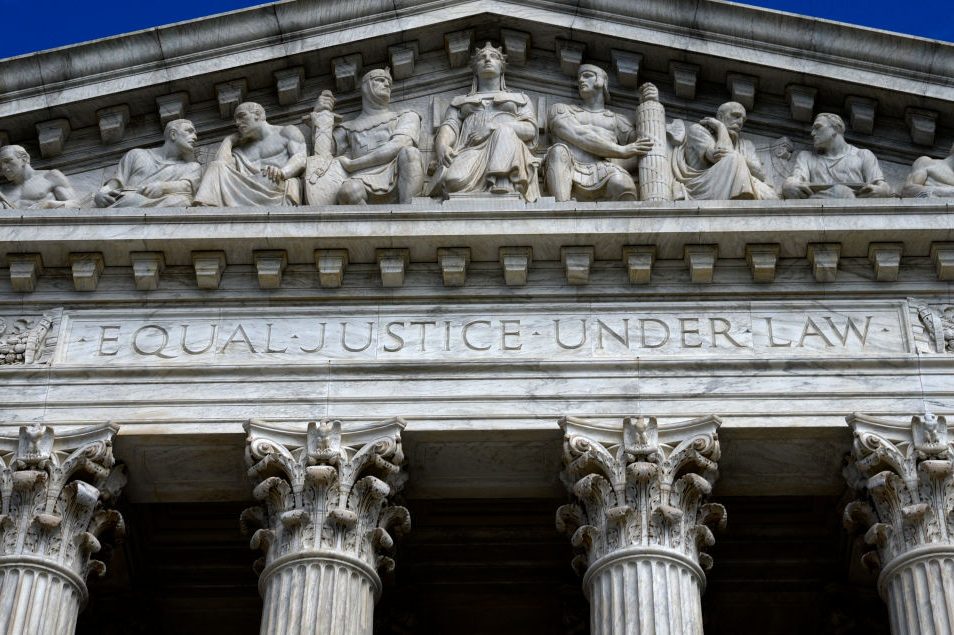Cassidy Hutchinson, the young woman who testified recently in front of the January 6 Committee, seems unaware that she violated the six basic rules of being a staff aide. She doesn’t even know her career is over; in fact, she thinks her efforts will be kickstarting her into fame. Someone should put her in touch with Monica Lewinsky.
To understand Cassie’s failure requires one to understand the Washington, DC ecology. There are the top-level predators, like Trump and Mark Meadows, his chief of staff, and there are the staff aides like Cassie. So Rule 1 of being a staff aide is knowing your place, followed quickly by Rule 2, never forget you will not be a staff aide forever.
The little bird that sits above the rhino’s tail seems important, and in a way she is. She keeps the rhino happy and in good humor. Oftentimes other animals find it easier to approach the bird before the rhino, to check whether he’s in a good mood, has been eating well, stuff the bird knows not because she is important per se but because she sits near the rhino’s butt. Cultivating a good relationship with the bird means better access. Staff aides are like that; they sit in the front office and respond to important people asking things like “Boss in a good mood today?” or “What did he think of my memo?” The aide is a proxy for the big guy. But the aide is not the big guy.
Cassie never “spent time with President Trump.” She attended events as background filler, endless signing ceremonies, celebrations and presidential announcements, and “frequently watched Marine One depart the South Lawn from my office window.” Just being places is a key staff aide task.
When they are not serving as benign, approachable proxies for the big guys, staff aides do a lot of “coordinating.” Spend an hour in any office in DC and you’ll hear that word a half dozen times. Big guys are too important for details, and staff aides are too young to know them. So, for example, Mark Meadows as chief of staff talks to the president, who says, “I wanna go to Chili’s for lunch.”
Meadows knows that means Secret Service, a motorcade, press, maybe rearranging the afternoon’s Boy Scout meet and greet, but has no interest in making lots of phone calls as the more calls he personally makes the less powerful he seems. So he asks his staff aide to “coordinate” the movement, and she, invoking his name like a hacking cough from a four-pack-a-day smoker, calls the movement people and says the president wants to go to Chili’s. Actually, she says, “Our office needs the president at Chili’s pronto.”
If the aide is good at her job, she is composed when the boss is stressed, smooth when he is rough, sugarcoated when he is cursing. This is because of Rules 1 and 2: she is not the boss and soon enough won’t be the staff aide anymore. And everyone below her (for now) on the food chain will remember whether she was rude, pushy and power-hungry.
It can be hard to do. I was an ambassador’s staff aide for a year. Many times in a raised voice the ambassador would say, “Why hasn’t Jones finished that memo [you told him to write on the ambassador’s behalf]?” followed by me after a deep breath phoning Jones to casually ask how it was going. If I said something like “You know, the ambassador is anxious about that memo,” I’d better have said it nicely because Jones outranked me by three steps. In a few months, I might be a wage slave in his shop. And he would remember Rule 2.
Cassie’s career to staff aide-date consisted of a couple of government internships out of her small Virginia public college, where she no doubt got ground down by someone’s staff aide. That aide forgot Rule 3: low levels you chew on when you’re staff aide can get promoted past you and they will remember you.
I got fooled twice as staff aide. Once was to drop a contrarian memo on the ambassador’s desk without the writer’s boss having seen it, and the second was to serve as a conduit of what I thought was staff intel but instead was just backstabbing gossip. In both instances I was on the wrong side of Rule 4: don’t get used by senior people. Always remember (Rules 1 and 2) that you are disposable. That brings us to Cassie and January 6.
Trump’s movement away from his January 6 speech went badly. The former president wanted to go to the Capitol but his Secret Service detail felt it was unsafe and, in a rare gesture, overruled him. Trump was upset and took it out on the two guys in charge, Tony Ornato and Bobby Engel. Back at the office, the guys dutifully recounted what happened, with Cassie all ears (Rule 5: as staff aide, you’re not well-briefed enough to overhear things and make sense of them).
She heard what may have been a bit of macho exaggeration by the guys, Trump grabbing the steering wheel and all, perhaps a bit of bravado as everyone was cooling down. She misunderstood what she heard (Rule 6, it happens), setting the story in The Beast, the massive armored stretch Cadillac limo that is the official presidential ride, when whatever happened happened in a Secret Service SUV per video records. A Secret Service agent would never misremember an SUV for The Beast but an aide would.
When the January 6 Committee came ’round, Cassie thought she had a tale to tell, Trump out of control in the vehicle and later throwing his lunch during a tantrum, his ketchup dripping down the wallpaper. The thing is, Cassie did not see either happen. She was repeating a Secret Service war story in the first instance and imagining the details in the second (she actually saw the ketchup dripping but not the throw). Any first-year law student will know those are examples of hearsay and secondhand information, immediately inadmissible as evidence. The Secret Service is ready to call Cassie a liar; Trump already did.
Cassie also claimed to have written a note about a potential Trump statement meant to quell the rioting. In fact, the note was written by White House attorney Eric Herschmann, according to his spokesman. “All sources with direct knowledge and law enforcement have and will confirm that it was written by Mr. Herschmann.” Rule 1 again: Cassie isn’t important enough to write notes for the president.
Cassie thought this was her big break, the staff aide who was going to change history. Never mind that she must have come across the definition of hearsay somewhere in her education; never mind that steering wheel grabbing and plate throwing are neither criminal nor impeachable offenses. She broke all the rules for her few minutes on TV, allowing herself to be used by a committee that knew damn well she had not witnessed anything and that swearing “under oath” to the truth of something you don’t know first-hand is impossible.
That leaves Cassie in violation of another rule, one most people learn on the playground: nobody likes a snitch. Anyone check in on how Monica Lewinsky’s career in Washington went? After a quick round on the late night shows, Cassie will disappear from DC-land. You don’t violate the rules of being a staff aide without consequences, after all.

























